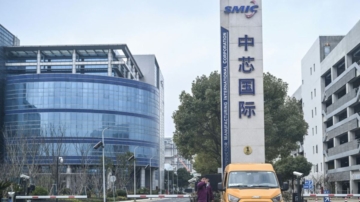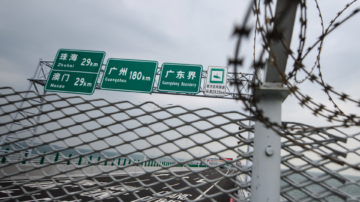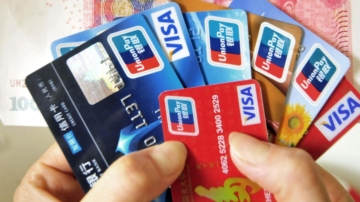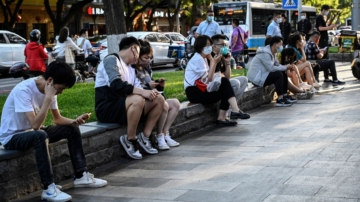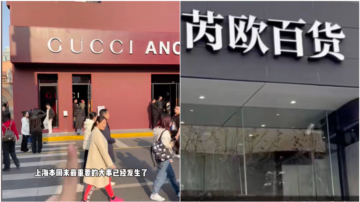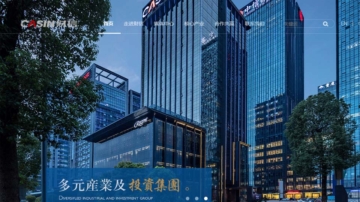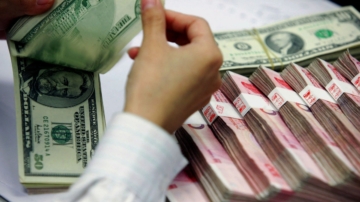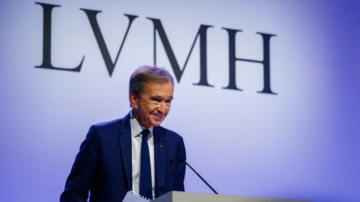【新唐人2013年09月28日讯】即将开幕的上海自贸区引发沸沸扬扬的讨论和期待。不同消息来源透露,自贸区将试行货币自由兑换和利率自由化,相当于在货币之墙上砸开一个口子。由于金融是没有边界的,专家相信,货币自由兑换无法完全局限于上海自贸区,而是将渗透到整个中国。货币之墙的口子会越撕越大。不过,中共的经济政策以快速增长为主导,忽视稳步发展,上海自贸区的前景将会如何呢?请看分析。
上海自贸区在中共总理李克强的强力推动下,将于9月29号正式挂牌并公布32项相关细则。由于今夏透露出的不同消息暗示一些官员想要做大,外界对它的期望很高。一些报导暗示说,对于这个区域的银行账户利率将完全自由化。其他人暗示,对于这个区域的企业,北京将完全开放关闭的资本账户。也许外国电信公司将被允许在这个区域投资,最终跟国内手机服务巨头,比如中国移动展开竞争。
原国家体改委官员,现任北京思源社会科学研究中心总裁的曹思源认为,跟过去30年里中国大大小小的经济特区相比,上海自贸区的不同之处在于,推出较大的外贸进出口权和外汇兑换权。不过,曹思源的理解是,只有成功申请加入上海自贸区的企业,才享有外汇兑换自由的权利。
北京思源社会科学研究中心总裁曹思源:“并不是任何人都可以跑到上海自由兑换。你申请加入上海自贸区,当然需要有一定的条件,要办一定的手续,这些条件和手续齐备的情况下,你这个企业就有这种权利了。”
英国《路透社》9月16号引述渣打银行分析说,上海贸易区存在一个难以平衡的矛盾。如果当局限制公司只能在上海自贸区进行它们所有的业务,影响力将是非常小的。而如果在这个区域放开的金融服务可以提供给中国的任何公司,那么它将基本上开放了它的资本账户,导致资本喷涌而出。
中国人民大学公共政策研究院执行副院长毛寿龙教授表示,经济自由贸易区是比较重要的一个概念,它对于经济的全球化、包括发展市场经济是非常有利的一种做法。
美国商业杂志《福布斯》9月15号发表华裔作家章家敦的文章说,几乎每一个中国经济专家都在关注上海自贸区的消息,因为当局将在中国货币之墙上砸开一个惊人的洞。
毛寿龙教授也认为,金融是不可能有壁垒的,因此货币自由兑换无法完全局限在上海自贸区。
中国人民大学公共政策研究院执行副院长毛寿龙:“钱实际上是没有身份证的,而且也没有国界。所以你看在进行金融市场化改革的时候,一方面肯定是局限于这个区域的范围,另外一方面,肯定跟它甚么级别的关系可以进入,它还是有一定的开放空间。但并不是说所有的企业、所有的金融都可以在那儿自由兑换,否则的话,等于是全部放开了。”
毛寿龙教授质疑,如果当局把货币自由兑换仅仅局限在上海自贸区,那这个自由化改革有甚么意义呢?
美国《华尔街日报》9月26号报导指出,过去30年,中共在中国各地建立了无数大大小小的经济特区,但是仍然拒绝拥抱从这些特区学到的经验,全面铺开经济自由化,因为他们知道,自由化将削弱他们的权力。目前的证据更多的表明,中国的特别经济区仅仅是为了取得快速增长而不是稳步推进自由化。
采访编辑/秦雪 后制/李智远
The Shanghai Free Trade Area, FTA is opening soon which has
raised many discussions and expectations.
Different sources say, currency exchanging freely and interest
rate liberalization will equate to breaking a hole in the wall.
Experts believe that currency exchanging freely cannot be
completely confined to the Shanghai FTA, but will permeate
through the whole of China with unbounded finance.
The hole in the wall of money will grow bigger and bigger.
What are the prospects of a Shanghai FTA with
Chinese Communist Party CCP economic policy leading
to rapid growth but ignoring steady development.
Let's take a look at the analysis.
On 29th September, the Shanghai Free Trade Area, FTA strongly,
promoted by the Chinese Premier Li Keqiang will be officially
established and will publish 32 related detailed rules.
Outside expectation is fairly high since some officials want
it to become more of an influence as revealed this summer.
Bank account interest rates will be fully liberalized in this
region and Beijing will completely open the
closed capital account as hinted.
Maybe foreign telecommunications companies will be allowed
to invest in this area, and compete with the domestic mobile
services giants such as China Mobile eventually.
Former State Commission official and current Beijing Siyuan
Social Sciences Research Centre CEO Cao Siyuan thinks
compared to China's special economic zones over the past
30 years, large and small, the Shanghai Free Trade Area has
more import and export rights and Foreign Exchange Authority.
However, Cao Siyuan's understanding is that only successful
enterprises that join the Shanghai FTA can enjoy
the right of foreign exchange freely.
Beijing Siyuan Social Sciences Research Center CEO Cao Siyuan:
To join the Shanghai FTA and enjoy exchange freely, you have
to meet certain conditions and complete certain formalities.
On 16th September, British "Reuters” quoted
Standard Chartered Bank analysts said
there is an unbalanced contradiction
in the Shanghai trading zone.
The influence will be very small if the authority limited
companies to do all their business in
the Shanghai trading zone.
However, if the financial services can be offered to any
company in China, it will basically open up its capital
account and result in capital spewing out.
The Public Policy Institute of Renmin University executive
VP, Professor Mao Shoulong said, the economic free trading
zone is a more important concept.
It is very favorable for the global economy and the
development of market economy.
On 15th September, U.S. business magazine "Forbes"
published Chinese writer Zhang Jiadun's article stated
almost every Chinese economic expert is concerned about
the Shanghai FTA, because the authorities will break down
an amazing hole in the Chinese currency wall.
Professor Mao Shoulong also believes that freely currency
exchange cannot be completely confined to the Shanghai Free
Trade because it is impossible to have financial barriers.
The Public Policy Institute of Renmin University executive
VP, Professor Mao Shoulong: money has no identity and borders.
You can see the Financial Marketization reform has limited
scope on the one hand;
it still has room to open up on the other.
It doesn't mean all businesses and financial institutes can
exchange freely there, otherwise it is equal
to full liberalization.
Professor Mao Shoulong questioned what is the meaning of
the liberalization reforms, if the authorities confined
exchanging currency freely to the Shanghai trading zone.
On 26th September, the US "Wall Street Journal" reported that
in the past 30 years, the CCP had established numerous SEZ
(special economic zones) in China, large and small, but still
refused to embrace the lessons learned from these SEZ.
As they know economy liberalization in full swing would result
in the weakening of their authority.
At present, more evidence shows that China's special economic
zones exist to just achieve rapid growth rather
than be steadily liberalized.
上海自贸区在中共总理李克强的强力推动下,将于9月29号正式挂牌并公布32项相关细则。由于今夏透露出的不同消息暗示一些官员想要做大,外界对它的期望很高。一些报导暗示说,对于这个区域的银行账户利率将完全自由化。其他人暗示,对于这个区域的企业,北京将完全开放关闭的资本账户。也许外国电信公司将被允许在这个区域投资,最终跟国内手机服务巨头,比如中国移动展开竞争。
原国家体改委官员,现任北京思源社会科学研究中心总裁的曹思源认为,跟过去30年里中国大大小小的经济特区相比,上海自贸区的不同之处在于,推出较大的外贸进出口权和外汇兑换权。不过,曹思源的理解是,只有成功申请加入上海自贸区的企业,才享有外汇兑换自由的权利。
北京思源社会科学研究中心总裁曹思源:“并不是任何人都可以跑到上海自由兑换。你申请加入上海自贸区,当然需要有一定的条件,要办一定的手续,这些条件和手续齐备的情况下,你这个企业就有这种权利了。”
英国《路透社》9月16号引述渣打银行分析说,上海贸易区存在一个难以平衡的矛盾。如果当局限制公司只能在上海自贸区进行它们所有的业务,影响力将是非常小的。而如果在这个区域放开的金融服务可以提供给中国的任何公司,那么它将基本上开放了它的资本账户,导致资本喷涌而出。
中国人民大学公共政策研究院执行副院长毛寿龙教授表示,经济自由贸易区是比较重要的一个概念,它对于经济的全球化、包括发展市场经济是非常有利的一种做法。
美国商业杂志《福布斯》9月15号发表华裔作家章家敦的文章说,几乎每一个中国经济专家都在关注上海自贸区的消息,因为当局将在中国货币之墙上砸开一个惊人的洞。
毛寿龙教授也认为,金融是不可能有壁垒的,因此货币自由兑换无法完全局限在上海自贸区。
中国人民大学公共政策研究院执行副院长毛寿龙:“钱实际上是没有身份证的,而且也没有国界。所以你看在进行金融市场化改革的时候,一方面肯定是局限于这个区域的范围,另外一方面,肯定跟它甚么级别的关系可以进入,它还是有一定的开放空间。但并不是说所有的企业、所有的金融都可以在那儿自由兑换,否则的话,等于是全部放开了。”
毛寿龙教授质疑,如果当局把货币自由兑换仅仅局限在上海自贸区,那这个自由化改革有甚么意义呢?
美国《华尔街日报》9月26号报导指出,过去30年,中共在中国各地建立了无数大大小小的经济特区,但是仍然拒绝拥抱从这些特区学到的经验,全面铺开经济自由化,因为他们知道,自由化将削弱他们的权力。目前的证据更多的表明,中国的特别经济区仅仅是为了取得快速增长而不是稳步推进自由化。
采访编辑/秦雪 后制/李智远
The Shanghai Free Trade Area, FTA is opening soon which has
raised many discussions and expectations.
Different sources say, currency exchanging freely and interest
rate liberalization will equate to breaking a hole in the wall.
Experts believe that currency exchanging freely cannot be
completely confined to the Shanghai FTA, but will permeate
through the whole of China with unbounded finance.
The hole in the wall of money will grow bigger and bigger.
What are the prospects of a Shanghai FTA with
Chinese Communist Party CCP economic policy leading
to rapid growth but ignoring steady development.
Let's take a look at the analysis.
On 29th September, the Shanghai Free Trade Area, FTA strongly,
promoted by the Chinese Premier Li Keqiang will be officially
established and will publish 32 related detailed rules.
Outside expectation is fairly high since some officials want
it to become more of an influence as revealed this summer.
Bank account interest rates will be fully liberalized in this
region and Beijing will completely open the
closed capital account as hinted.
Maybe foreign telecommunications companies will be allowed
to invest in this area, and compete with the domestic mobile
services giants such as China Mobile eventually.
Former State Commission official and current Beijing Siyuan
Social Sciences Research Centre CEO Cao Siyuan thinks
compared to China's special economic zones over the past
30 years, large and small, the Shanghai Free Trade Area has
more import and export rights and Foreign Exchange Authority.
However, Cao Siyuan's understanding is that only successful
enterprises that join the Shanghai FTA can enjoy
the right of foreign exchange freely.
Beijing Siyuan Social Sciences Research Center CEO Cao Siyuan:
To join the Shanghai FTA and enjoy exchange freely, you have
to meet certain conditions and complete certain formalities.
On 16th September, British "Reuters” quoted
Standard Chartered Bank analysts said
there is an unbalanced contradiction
in the Shanghai trading zone.
The influence will be very small if the authority limited
companies to do all their business in
the Shanghai trading zone.
However, if the financial services can be offered to any
company in China, it will basically open up its capital
account and result in capital spewing out.
The Public Policy Institute of Renmin University executive
VP, Professor Mao Shoulong said, the economic free trading
zone is a more important concept.
It is very favorable for the global economy and the
development of market economy.
On 15th September, U.S. business magazine "Forbes"
published Chinese writer Zhang Jiadun's article stated
almost every Chinese economic expert is concerned about
the Shanghai FTA, because the authorities will break down
an amazing hole in the Chinese currency wall.
Professor Mao Shoulong also believes that freely currency
exchange cannot be completely confined to the Shanghai Free
Trade because it is impossible to have financial barriers.
The Public Policy Institute of Renmin University executive
VP, Professor Mao Shoulong: money has no identity and borders.
You can see the Financial Marketization reform has limited
scope on the one hand;
it still has room to open up on the other.
It doesn't mean all businesses and financial institutes can
exchange freely there, otherwise it is equal
to full liberalization.
Professor Mao Shoulong questioned what is the meaning of
the liberalization reforms, if the authorities confined
exchanging currency freely to the Shanghai trading zone.
On 26th September, the US "Wall Street Journal" reported that
in the past 30 years, the CCP had established numerous SEZ
(special economic zones) in China, large and small, but still
refused to embrace the lessons learned from these SEZ.
As they know economy liberalization in full swing would result
in the weakening of their authority.
At present, more evidence shows that China's special economic
zones exist to just achieve rapid growth rather
than be steadily liberalized.

